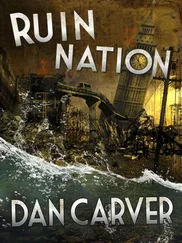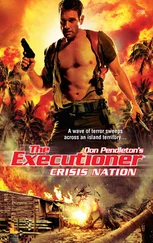Dan Singer - Start-up Nation
Здесь есть возможность читать онлайн «Dan Singer - Start-up Nation» весь текст электронной книги совершенно бесплатно (целиком полную версию без сокращений). В некоторых случаях можно слушать аудио, скачать через торрент в формате fb2 и присутствует краткое содержание. Жанр: Старинная литература, на английском языке. Описание произведения, (предисловие) а так же отзывы посетителей доступны на портале библиотеки ЛибКат.
- Название:Start-up Nation
- Автор:
- Жанр:
- Год:неизвестен
- ISBN:нет данных
- Рейтинг книги:3.5 / 5. Голосов: 2
-
Избранное:Добавить в избранное
- Отзывы:
-
Ваша оценка:
- 80
- 1
- 2
- 3
- 4
- 5
Start-up Nation: краткое содержание, описание и аннотация
Предлагаем к чтению аннотацию, описание, краткое содержание или предисловие (зависит от того, что написал сам автор книги «Start-up Nation»). Если вы не нашли необходимую информацию о книге — напишите в комментариях, мы постараемся отыскать её.
Start-up Nation — читать онлайн бесплатно полную книгу (весь текст) целиком
Ниже представлен текст книги, разбитый по страницам. Система сохранения места последней прочитанной страницы, позволяет с удобством читать онлайн бесплатно книгу «Start-up Nation», без необходимости каждый раз заново искать на чём Вы остановились. Поставьте закладку, и сможете в любой момент перейти на страницу, на которой закончили чтение.
Интервал:
Закладка:
Part of our book was written in the eclectic Van Leer Institute in Jerusalem, which made an invaluable contribution by hosting Saul as a library fellow. Our thanks to director Gabriel Motzkin and librarians Yaffa Weingarten and Paul Maurer for all their gracious assistance.
We are deeply indebted to our industrious and creative team of research assistants: Michal Lewin-Epstein was our lead researcher at the Council on Foreign Relations; Dani Gilbert spent a summer at CFR with us and then continued doing part-time research while at the London School of Economics; Joshua Kram joined our team for a stint after serving as an adviser to Hillary Clinton’s presidential campaign; Talia Gordis brought her own experience in IDF intelligence, and Ian Mitch and Anton Ornstein also helped at CFR as we began the project.
A number of people we interviewed, as well as one of our researchers, came from Arab countries. We respect their request for anonymity, since association with this book could prevent them from working in the Arab world; and we are grateful for their contributions.
With speed and deftness, our friend Judy Heiblum of Sterling Lord Literistic—and a Unit 8200 alumnus—made important suggestions on the structure of the manuscript.
We thank all the friends and family who read the manuscript; your sharp and candid feedback sent us back to the drawing board. We are especially grateful to Dan Allen, Stephen Backer, Max Boot, Paul Bremer, Reed Dickens, Shane Dolgin, Jonathan Ehrlich, Annette Furst, Mark Gerson, Henry Gomez, Alan Isenberg, Terry Kassel, Roger Marrero, Roman Martinez, Jim Miller, Josh Opperer, Matt Rees, Helen Senor, Suzanne and Max Singer, Andrew Vogel, and Pete Wehner, who read the manuscript from cover to cover under considerable time pressure.
Dale and Bill Fairbanks (Dan’s in-laws) provided a quiet writing refuge in their art studio in Pensacola, Florida, keeping him well fed, highly caffeinated, and intensely focused for a long stretch leading up to the publisher’s deadline.
A group of Dan’s friends and business partners were extremely patient as this book was being written. Devon Archer, Dan Burrell, David Fife, Chris Heinz, and Jenny Stein deserve special thanks. Paul Singer, while never directly interviewed for this book, has been a teacher about macroeconomics without even realizing it. His very strong views about innovation economics impacted our thinking about the context for this book in the postcrash global economy.
We interviewed over one hundred people for this book, and wish to thank all of them for their time and wisdom. In particular, Hall of Fame Israeli venture investors Eli Barkat, Yigal Erlich, Yadin Kaufmann, Erel Margalit, Jon Medved, Chemi Peres, and Yossi Vardi have been living and telling the Start-up Nation story from long before we got involved; they were our guides. Jon Medved, in particular, was pitching the Israeli economy to the world before it was on anyone’s map. Other extremely busy people who spent a lot of time with us in multiple interviews were Shai Agassi, Tal Keinan, and Scott Thompson. Isaac “Yitz” Applbaum and Alan Feld went out of their way to put themselves “on call” for us. Professor Shira Wolovsky Weiss helped us early on, as did Ken Pucker.
A number of U.S. companies have a strong presence in Israel and truly “get” the Start-up Nation. Current and former leaders from three in particular opened their doors to us in Israel and in Silicon Valley and provided lots of access: thank you to Google’s Eric Schmidt, David Krane, Yossi Mattias, Andrew McLaughlin, and Yoelle Maarek; Intel’s Shmuel Eden and David Perlmutter; and Cisco’s Michael Laor and Yoav Samet.
Leon Wieseltier provided us with wise counsel on the relationship between Jewish history and the modern Israeli ethos.
Stuart Anderson, a former colleague of Dan’s from the Senate Subcommittee on Immigration, has always been a source of rich analysis on immigration reform. He shared important research on the subject for this book.
We are grateful to the president of Israel, Shimon Peres, who gave us half a day in his office. He not only gave us his unique perspective as a central player throughout the entire span of Israel’s history, but is still, at age eighty-five, in high office and busy working to launch whole new industries. We would also like to thank the prime minister of Israel, Benjamin Netanyahu, for spending a lot of time with us during a hectic period for him in 2008.
As we compared the Israeli and American experiences, a number of U.S. military leaders helped us think through the contrasts. In particular, we would like to thank Generals John Abizaid (ret.), Jack Keane (ret.), Mark Kimmitt (ret.), David Petraeus, H. R. McMaster, and Jim Newbold (ret.).
Our wives, Campbell Brown (Dan) and Wendy Singer (Saul), have been an integral part of our daily conversation about this book since we began writing it, and bore the brunt of the frenzied weeks before each deadline.
Campbell gave birth to the Senors’ first son, Eli, two weeks before we started writing the proposal, and to their second, Asher, just before we submitted the final manuscript, all as she held down the family fort during a chaotic time. Wendy scooped up the Singer girls—Noa, Tamar, and Yarden—for week-long trips to give Saul space before deadlines. The Singer girls added to our excitement as they lapped up stories of the latest Israeli inventions with enthusiasm.
This book relied heavily on Campbell’s and Wendy’s criticisms and advice, and could not have been completed without their virtuoso feats of multitasking. For that, and for so much more, we dedicate it to them.
We have also dedicated this book to Jim Senor (Dan’s father) and Alex Singer (Saul’s brother).
Jim worked in Iran helping to organize the Jewish community, and later for the Weizmann Institute of Science, where he drafted resources for its pioneering solar energy program. Just months before the 1985 ground-breaking for the field of mirrors—now still active as a research facility—Jim passed away.
On September 15, 1987, his twenty-fifth birthday, IDF Lieutenant Alex Singer was flown by helicopter into Lebanon to intercept terrorists bound for Israel; he was killed while trying to rescue his downed company commander. Many who never knew him have since been inspired by the joy and passion of his life as seen in Alex: Building a Life , the book of his letters, journals, and art.
Jim’s and Alex’s work is part of this story. We missed their guidance, and sharing their amazement at what the Start-up Nation has become.
NOTES
Introduction
1. The information in this passage is largely drawn from an interview with Shimon Peres, president of Israel, December 2008; and interviews with Shai Agassi, founder and CEO of Better Place, March 2008 and March 2009.
2. Shai Agassi’s blog, “Tom Friedman’s Column,” July 26, 2008, http://shaiagassi.typepad.com/.
3. The information about Better Place is largely drawn from interviews with Shai Agassi.
4. Daniel Roth, “Driven: Shai Agassi’s Audacious Plan to Put Electric Cars on the Road,” Wired, vol. 16, no. 9 (August 18, 2008).
5. Haim Handwerker, “U.S. Entrepreneur Makes Aliyah Seeking ‘Next Big Invention,’ ” Haaretz, August 28, 2008.
6. Israel Venture Capital Research Center, www.ivc-online.com.
7. Authors’ calculations based on venture capital data from Dow Jones, VentureSource.
8. Dow Jones, VentureSource.
9. Donna Rosenthal, The Israelis: Ordinary People in an Extraordinary Land (New York: Free Press, 2005), p. 111.
10. Standard of living comparative data from www.gapminder.com.
11. Mark Twain, The Innocents Abroad: or, The New Pilgrims’ Progress (Hartford: American Publishing Company, 1870), p. 488.
Читать дальшеИнтервал:
Закладка:
Похожие книги на «Start-up Nation»
Представляем Вашему вниманию похожие книги на «Start-up Nation» списком для выбора. Мы отобрали схожую по названию и смыслу литературу в надежде предоставить читателям больше вариантов отыскать новые, интересные, ещё непрочитанные произведения.
Обсуждение, отзывы о книге «Start-up Nation» и просто собственные мнения читателей. Оставьте ваши комментарии, напишите, что Вы думаете о произведении, его смысле или главных героях. Укажите что конкретно понравилось, а что нет, и почему Вы так считаете.












